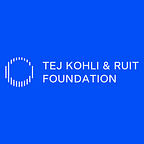Empowering Women Won’t End Gender Violence But It Will Improve The Lives Of Everyone: An Exploration into Discrimination
The fifth United Nations Sustainable Development Goal is to achieve gender equality and empower all women and girls. Progression into a society with gender equality is something that can be seen across countries, companies, and mindsets. More women and girls are in education, more women are in senior positions at companies and at the start of 2021 we saw the most female political leaders than ever before.
It’s clear that there has been a shift in terms of the empowerment of women in recent years and rightly so. There are a vast number of statistics that show that empowering women and girls benefits all of society, and we believe that to grow our communities and further, the global economy, a shift needs to occur.
In 2018, the World Bank released a report that showed gender inequality in the workforce obstructs economic growth and productivity. In the 141 countries that the report pulled data from, nearly every country showed significant barriers to entry for women to get into the workforce. Just 38% of the global workforce was accounted for by women workers, and in lower income countries this statistic was even lower. The study showed that if men and women were in employment for the same length of time, there would be around 160 trillion USD dollars more wealth around the globe.
When the number of women in the workforce rise, so does productivity. Men and women bring different perspectives to the workplace and an IMF report suggests that with that comes more varied attitudes to risk and collaboration. With this diversification, there is more chance for stronger growth and increased productivity, both of which can result in higher wages or bigger bonuses for all.
With higher wages across the board, the ways that income spending is divided in the home is easier to calculate. The World Bank published evidence utilising data from countries across the world showing when women had greater control over the household income, children benefited more. The study showed that spending on education, children’s clothes and food was higher when women were either earning their own money or in control of cash transfers.
It’s not just a monetary issue though. There are some 129 million girls out of school worldwide. Numbers show that secondary school age girls make up the highest number of missing students at a colossal 67 million. Reasons for these ‘missing’ students include poverty, child marriage, gender-based violence and conflict. In many cases these can all be exacerbated by cultural ideas of gender roles.
When a family lives in poverty, it is usually male children that are favoured for education therefore they are the ones to receive quality schooling. Cases of child marriage, in particular young girls being married off to wealthier and often older men, have also been said to be rising recently as an effect of climate change. The effects of climate change can ramp up the drivers of child marriage including poverty, displacement, conflict and famine and as a result more and more young girls are being married off, subsequently reducing the number of girls and young women in education.
Unicef states that investing in girls’ education has the proven ability to transform communities in the long run. Girls and young women that are in education are less likely to marry at a young age and more likely to lead economically productive lives, earn higher incomes and live empowered, indepdent lives. This cycle has the potential to reduce inequalities in the global labour force, boost spending in the economy and strengthen societies as there are more financially stable individuals and families contributing to the economic cycle.
By investing in the empowerment of women, we as a global society can unlock a surge of potential for people all over the world. We must tap into the potential that each and every person possesses to ensure we are as equipped as possible moving into the future.
This story is part of the series, An Exploration into Discrimination, by the Tej Kohli & Ruit Foundation.
